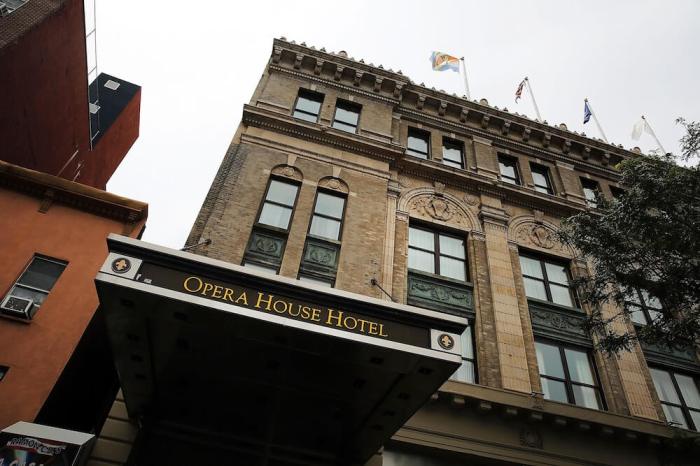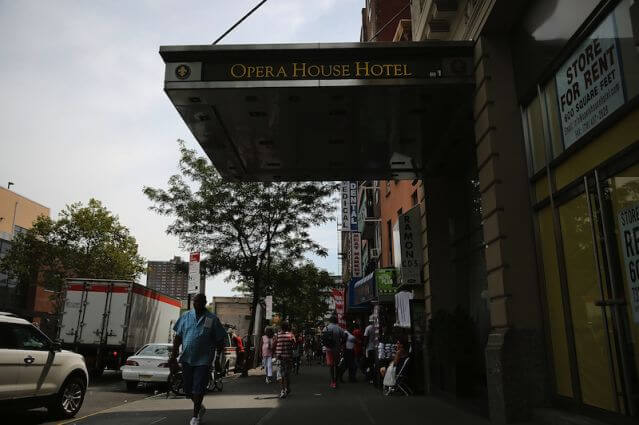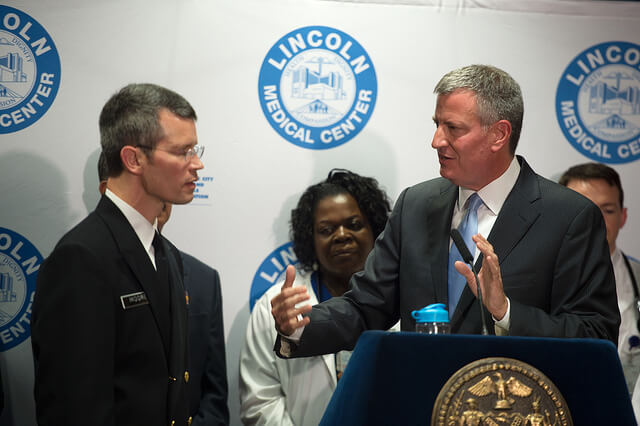Maria Cortes first walked through the glass doors of the nondescript Kings County Civil Courthouse almost five years ago.
The South Williamsburg resident sued her landlord for not fixing her rent-regulated apartment that Cortes, 62, has lived in for 23 years.
“When I first came in, it was a disaster,” she said of her first day of many in court.
A native Spanish speaker, Cortes said she was met inside the building at 141 Livingston St. with English-only signs and employees. She ended up spending the entire day in a cramped and crowded room with other tired and confused Brooklynites. Even so, Cortes was one of the lucky ones. She secured a lawyer before going to court. Advocates and lawmakers argue some 90 percent of tenants who go to housing courts — which doesn’t require right to counsel unlike criminal courts — have no legal representation. “Justice is hard to find in courthouses that confuse the people they’re supposed to serve,” said Comptroller Scott Stringer from outside the building Monday.
Stringer stood outside the Bronx Housing Courthouse on Feb. 4 in support of a bill that would provide public defender services for tenants. On Monday, he wrote a letter to New York State Chief Administrative Judge Gail Prudenti and urged her to expand language access in the courthouses for non-English speaking New Yorkers. The comptroller said his office surveyed the five boroughs’ courthouses only to discover most had English-only signage and a dearth of translation services, the lack of which he said sometimes forced New Yorkers to spend days in wait until one became available. “What we found was outrageous and an insult to thousands of New Yorkers,” Stringer said.
Brooklynite Hilary Gibbs, 58, joked she’s been in the courthouse almost 100 times, each visit worse than her last. Gibbs fought her landlord in court three times since 2009, but didn’t have a lawyer until her second date in court. She said the courthouse and proceedings were a maze, even without a language barrier.
“I speak English. I would say I’m very educated, and I was totally lost in that building,” Gibbs said.
Gibbs has lived in her Prospect-Lefferts Gardens apartment for 40 years and only ended her latest legal battle in January.
“The worst part is the waiting. The landlords’ lawyers get preference, and we just sit there and wait for them,” she added.
The fight to keep longtime tenants is their homes has been playing a key role in Mayor Bill de Blasio’s plan fight for affordable housing and against displacement in his second year in office. During his State of the City speech, de Blasio focused on the benefits and perils of gentrification, including predatory landlords. Cortes, who has seen the changes in North Brooklyn over the last two decades, blamed those landlords for pushing her neighbors out and forcing them into court.
“The neighborhoods have changed 100 percent. We lost Bedford Stuyvesant, and we lost Williamsburg,” she said. “All the the landlords are trying to buy out the people and take them to court for nothing. For nothing. They want our apartments. They want more money.” De Blasio also announced last week city agencies would coordinate with state Attorney General Eric Schniederman’s office to pursue criminal prosecution of bad landlords who harass tenants
His administration also announced it would provide free legal defense for tenants in neighborhoods in the process of being rezoned.
The City Council wants to take it even further and provide all low-income New Yorkers who step into housing court with an attorney.
“We are at a crossroads,” said the bill’s co-sponsor Bronx City Councilwoman Vanessa Gibson. “We must balance the scales of justice for all New Yorkers when they enter housing court.


















